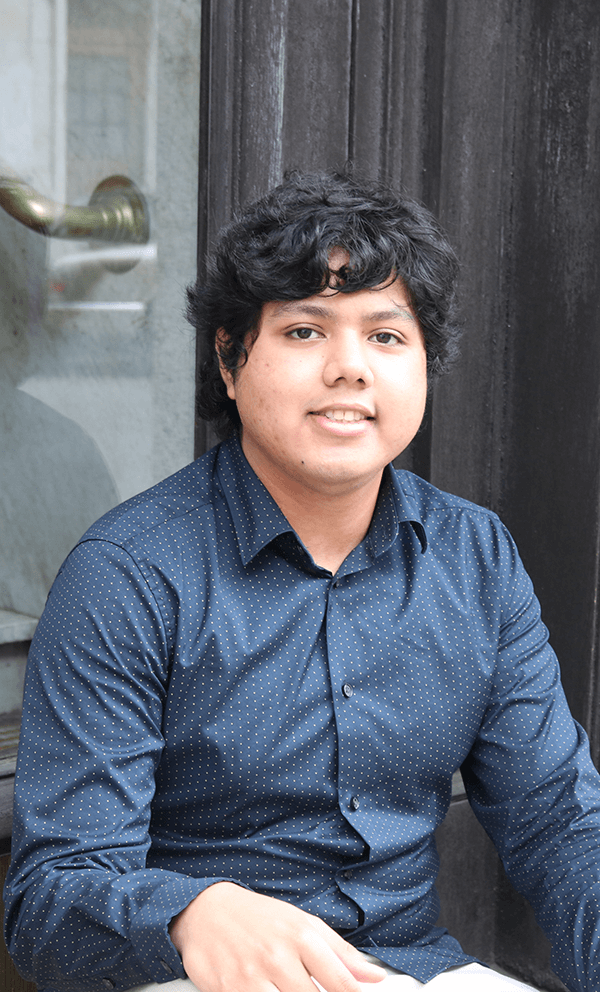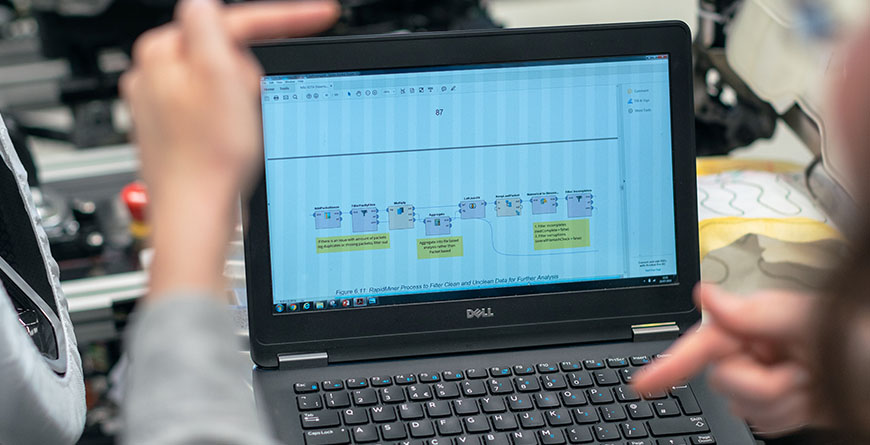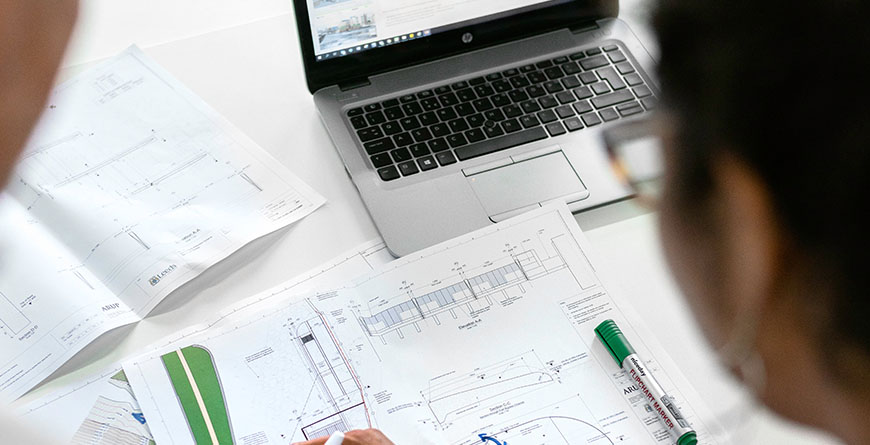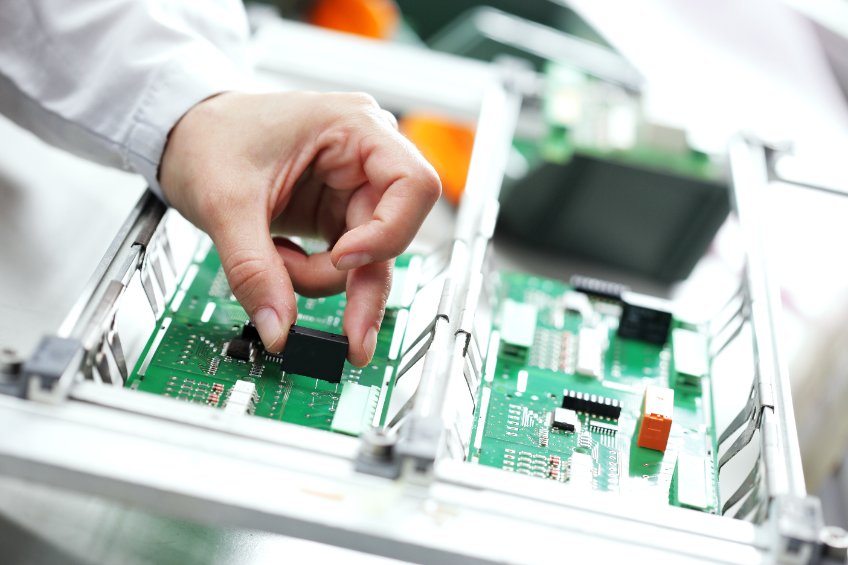Engineering Department
The Engineering Department at Passaic County Community College offers degree and certificate programs, articulation agreements with area institutions for those who wish to continue their education towards a baccalaureate degree, and partnerships with area industries that provide students with challenging internships and employment opportunities.
Questions? Contact Us
Merille Siegel, Department Chair
[email protected]
(973) 684-6445

Degrees & Certificates
Engineering Science Degree
Electronics Engineering Technology Degree
AutoCAD Certificate
EET Program Objectives & Outcomes
EET Program Objectives
The Electronic Engineering Technology Program prepares the student for employment as a technician in a variety of settings. The program prepares the student to apply basic engineering principles and technical skills in support of electrical, electronics, and communication engineers. The p program includes instruction in electrical circuitry. Students will have experience in prototype development and testing. Graduates will be able to perform systems analysis and testing and will be able to provide systems maintenance and instrument calibration. Report preparation will also be part of the student’s training.
Graduates of the Electrical Engineering Technology Program earn an Associate in Applied Science Degree and are prepared to enter the workforce as an entry-level technician. The Electrical Engineering Technology Program curriculum is structured so as to provide students with the necessary knowledge and skills utilizing a combination of general education courses and electronic theory courses. In addition, students will have laboratory experiences that will reinforce the application of electronic theory to the practical application of concepts learned.
Graduates of the Electrical Engineering Technology Program will able be in a position to pursue a B.S. degree in one of the five following concentrations within the Electrical Engineering Technology curriculum: general, computer, communications, clinical, and rehabilitation.
EET- Program Educational Objectives:
To produce graduates who:
- Possess the ability to communicate effectively in oral, written and graphical modes
- Can function effectively, in team-oriented activity, as electronics technologist in an industrial corporate environment.
- Are knowledgeable of expected standards of professional conduct, and can succeed in continued formal education
EET Program Learning Outcomes
The Electrical Engineering Program has been designed by Passaic County Community College to prepare entry-level graduates with the knowledge and skills necessary to work as a technician or to pursue a B.S. degree in Electrical Engineering Technology in one of the five concentrations within the Electrical Engineering Technology curriculum: general, computer, communications, clinical and rehabilitation.
Upon completion of the program the students will be able to:
- Use the following computer programs: PSpice, Electronic bench, Matlab, Microsoft Office.
- Solve engineering problems using calculus.
- Solve numerical problems associated with the principles of engineering.
- Construct and analyze simple DC and AC circuits.
- Construct and analyze solid-state circuits consisting of diodes and transistors.
- Construct and analyze digital logic circuits.
- Describe and utilize basic structures and operation of a microprocessor including assembly language.
- Manipulate scientific apparatus, gather, and analyze data, draw conclusions from laboratory information and write clear concise scientific reports.

Accreditation
Program Accreditation
Engineering Technology Accreditation Commission of ABET
111 Market Place Suite 1050
Baltimore, MD 21202-4012
Telephone: 410-347-7700

Engineering Lab
The Engineering Lab is open to students Monday to Friday. It has all the equipment required to build and analyze:
- DC and AC Circuits
- Digital Logic Circuits
- Solid-state Circuits
This lab also has the computer software used by Electronics Engineering and Engineering Science students. Engineering students will find assistance in the use of all these programs as well as the use of the equipment in the lab. Students who want to perform electronics experiments other than assigned are welcome.

Societies/Periodicals
Science Teaching Societies and Organizations
American Association for Higher Education
One Dupont Circle, suite 600
Washington, DC 20036-1110
(202) 293-6440
American Association of Physics Teachers
1 Physics Ellipse
College Park, MD 207440-3845
(301) 209-3300
American Council on Education
One Dupont Circle, Suite 800
Washington, DC 20036
(202) 939-9300
Association for the Education of Teachers in Science
The University of West Florida
11000 University Parkway
Pensacola, FL 32514
(904) 474-2860
Association of American Colleges and Universities
1818 R Street, NW
Washington, DC 20009
(202) 387-3760
Biological Sciences Curriculum Study
5415 Mark Dabling Blvd.
Colorado Springs, CO 80918-3482
(719) 531-5550
Carnegie Foundation for the Advancement of Teaching
1755 Massachusetts Avenue, NW
Washington, DC 20036
(202) 387-7200
Coalition for Education in the life Sciences
Office of Education and Training
American Society for Microbiology
1325 Massachusetts Avenue, NW
Washington, DC 20005
(202) 737-3600
Council of Chief State School Officers
One Massachusetts Avenue, NW, Suite 700
Washington, DC 20001-1431
(202) 408-5505
Council of Graduate Schools
One Dupont Circle, Suite 430
Washington, DC 20036
(202) 223-3791
Independent Colleges Organization
1730 Rhode Island Avenue, NW
Washington, DC 20036
(202) 232-1300
National Association for Research in Science Teaching
Ohio State University
1929 Kenny Rd., Suite 100
Columbus, OH 43210-1015
(614) 292-3339
National Association of Biology Teachers
11250 Roger Bacon Drive, Suite 19
Reston, VA 22090
(703) 471-1134
National Association of Geoscience Teachers
C/o Robert A. Christman
P.O. Box 5443
Bellingham, WA 98227-5443
(360) 650-3587
National Center for Improving Science Education
2000 L Street, NW, Suite 603
Washington, DC 20036
(202) 467-0652
National Center on Postsecondary Teaching, Learning, and Assessment
The Pennsylvania State University
403 South Allen Street, Suite 104
University Park, PA 16801-5252
(814) 865-5917
National Council of Teachers of Mathematics
1906 Association Drive
Reston, VA 20191-1593
(703) 620-9840
National Earth Science Teachers Association
C/o M. Frank Watt Ireton
American Geophysical Union
2000 Florida Avenue, NW
Washington, DC 20009
(202) 462-6910×243; (202) 328-0566
National Science Teachers Association
1840 Wilson Blvd.
Arlington, VA 22201-3000
(703) 243-7100
Society for College Science Teachers
C/o Dr. William McIntosh
Delaware Sate University
Dover, DE 19901
(302) 739-5206
State Higher Education Executive Officers
707 17th Street, Suite 2700
Denver, CO 80202-3427
(303) 299-3600
Science and Technology-Related Organizations
American Association for the Advancement of Science
1333 H Street, NW
Washington, DC 20005
(202) 326-6400
American Association Of Medical Colleges
2450 N Street, NW
Washington, DC 20037
(202) 828-0400
American Astronomical Society
2000 Florida Avenue, NW
Suite 400
Washington, DC 20009
(202) 328-2010
American Chemical Society
1155 16th Street, NW
Washington, DC 20036
(202) 872-4600
American Geological Institute
4220 King Street
Alexandria, VA 22302
(703) 379-2480
American Geophysical Union
2000 Florida Avenue, NW
Washington, DC 20009
(202) 462-6900
American Institute of Biological Sciences
1444 I Street, NW, Suite 2000
Washington, DC 20001-4521
(202) 628-1500
American Institute of Physics
1 Physics Ellipse
College Park, MD 20740-3843
(301) 209-3007
American Mathematical Association of Two-Year Colleges
State Technical Institute at Memphis
5983 Macon Cove
Memphis, TN 38134
(901) 383-4643
American Mathematical Society
1529 18th Street, NW
Washington, DC 20036
(202) 588-1100; (800) 321-4267
American Physical Society
1 Physics Ellipse
College Park, MD 20740-3843
(301) 209-3007
American Physiological Society
9650 Rockville Pike
Bethesda, MD 20814-3991
(301) 530-7118
American Society for Cell Biology
9650 Rockville Pike
Bethesda, MD 20814-3991
(301) 530-7153
American Society for Engineering Education
1818 N Street, NW, Suite 600
Washington, DC 20036
(202) 331-3500
American Society for Microbiology
1325 Massachusetts Avenue, NW
Washington, DC 20005
(202) 737-3600
Carnegie Commission on Science, Technology and Government
437 Madison Avenue
New York, NY 10022
(212) 371-3200
Geological Society of America
P.O. Box 9140
300 Penrose Place
Boulder, CO 80301
(303) 447-2020
Harvard-Smithsonian Center for Astrophysics
60 Garden Street
Cambridge, MA 02138
(617) 496-4798
International Center for the Advancement of Scientific Literacy
Chicago Academy of Sciences
2060 North Clark Street
Chicago, IL 60614
(312) 549-0606
Mathematical Association of America
1529 18th Street, NW
Washington, DC 20036
(202) 387-5200
Optical Society of America
2010 Massachusetts Avenue
Washington, DC 20036
(202) 223-8130
Science, Technology, and Society Program
133 Willard Building
University Park, PA 16802
(814) 865-9951
Sigma Xi, The Scientific Research Society
P.O. 13975
Research Triangle Park, NC 27611-7448
(919) 549-4691
Organization for Women in Science, Mathematics, and Engineering
American Association of University Women
1111 16th Street, NW
Washington, DC, 20036-4873
(202) 785-7700
Association for Women in Mathematics
4114 Computer and Space Science Building
University of Maryland
College Park, MD 20742-2461
(301) 405-7892
Association for Women in Science
1522 K Street, NW, Suite 820
Washington, DC 20005
(202) 408-0742
Society of Women Engineers
120 Wall Street
New York, NY 10005
(212) 509-9577

